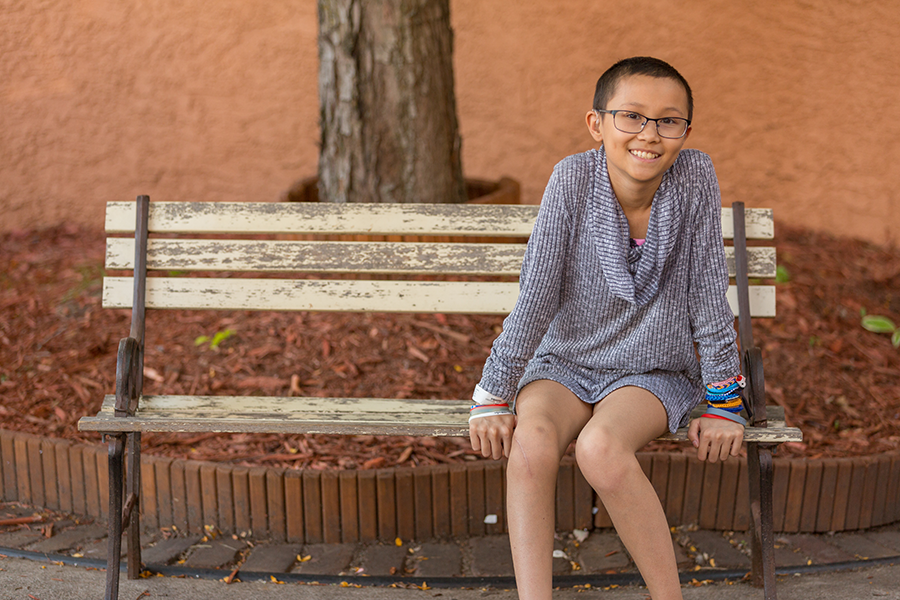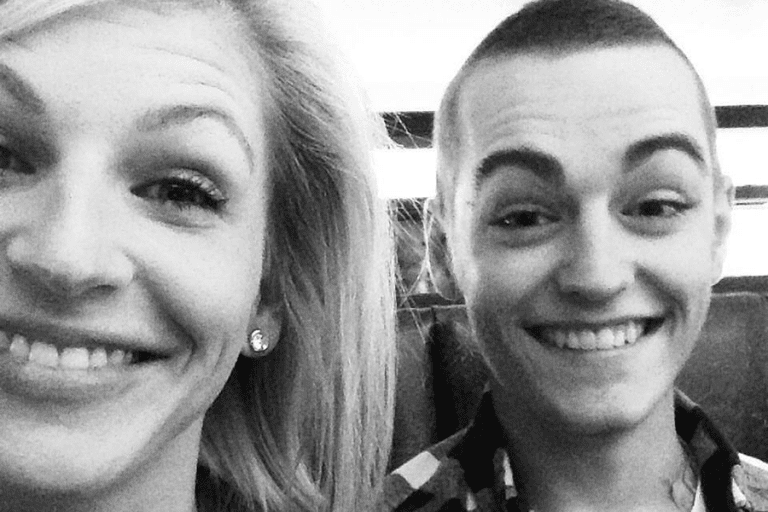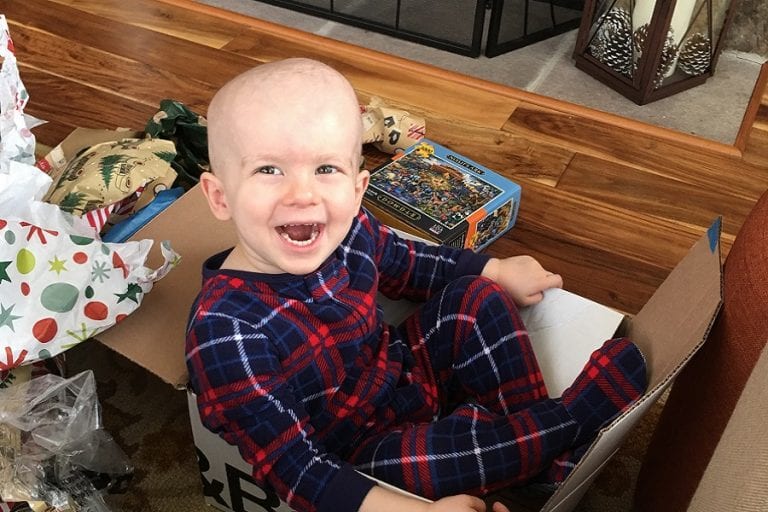Nathalia is resilient, spirited and humorous, but it’s her heart that her mom, Katy, loves most. Full of gratitude, Nathalia never misses a chance to thank the nurses, doctors and other caregivers who’ve helped her through her treatment for osteosarcoma, a devastating bone cancer.
Before she was diagnosed, she had been limping and complaining of leg pain for about six months. During that time, Katy brought her to the doctor, but they were told she most likely had a torn ligament or simply growing pains.
Later in the summer of 2016, Katy noticed Nathalia was still limping, and when they returned home from a trip to Canada, her right leg was swollen. Getting ready to go off to summer camp for two weeks, her mom made the decision to take her to urgent care, and within the time of that visit, all plans to go to summer camp were canceled—Nathalia had cancer. Starting in her leg, the disease had already spread to her lungs.
A whirlwind of scans later, she had a treatment plan: 5 cycles of intense chemotherapy and a surgery on her leg, which thankfully, would not have to be amputated. After chemotherapy, doctors would then do surgery on both her lungs to remove smaller tumors.
In the middle of her treatment, her body stopped responding to the original treatment plan, so they had to pivot and try an entirely new chemotherapy cocktail. Unfortunately, this meant Nathalia would have to be in the hospital for five days of chemotherapy, instead of two or three days, meaning she’d miss out on playing with friends, miss school and all the other activities a 12-year-old loves. At first, the new treatment option was very effective, and surgeons were able to move forward with surgery as planned with good results. But, it stopped working again.
Despite failing chemotherapy treatment, doctors went ahead and performed her second surgery on her lungs. From the pathology report, doctors found that two of the tumors had living cancer cells, which meant that the cancer was still very active within her body.
At this point, her family had to weigh Nathalia’s options: She could either go on an oral chemotherapy or she could sign up for a clinical trial which involved a shot once a month. They decided to try the clinical trial. Though options were running thinner, the shots didn’t make her as sick. For Katy, the hardest part of watching her daughter go through cancer was seeing the emotional toll treatment took on her.
“I think the biggest thing that has changed since all this has happened is to take each day as it comes, to be more present in the moment with my kids, but in life in general,” said Katy. “I want to live life purposefully and to not plan life for what you think it should be. There is this motto I live by, ‘When it rains, look for the rainbow; when it’s dark, look for the stars.’”
For Katy and her family, research is important because it creates more options for kids. “Without research, many patients would be stuck with antiquated treatments … which makes them sicker than they already are,” she said. “Without [research] many kids will either end up dying or have prolonged issues caused by the treatment… in Nathalia's words “It’s the only way to give effective treatments and/or better treatments for kids.”
During one her of her hospital visits, Nathalia had realized the reality that she could pass away. “She told me if she passed, that she hoped that in some way, she would still be able to help raise awareness and help others who were in the same situation she was in,” Katy said.
This September, Nathalia had scans to see if the shots had been working. Though Nathalia had no evidence of disease for a few months, the cancer recently returned this fall.
“My hope for her is that she's healthy and that she will continue to inspire others around her,” said Katy. “[I want her] to be happy and with a new appreciation of life, to live it to the fullest, to find a new confidence and to know that she can overcome any obstacles that come her way.”
Support Research for Kids Like Nathalia
Treatments for Nathalia's type of cancer haven't improved in decades. Researchers are working on better therapies, but they can't do it alone. Learn more about how you can get involved and move research forward for kids like Nathalia.




